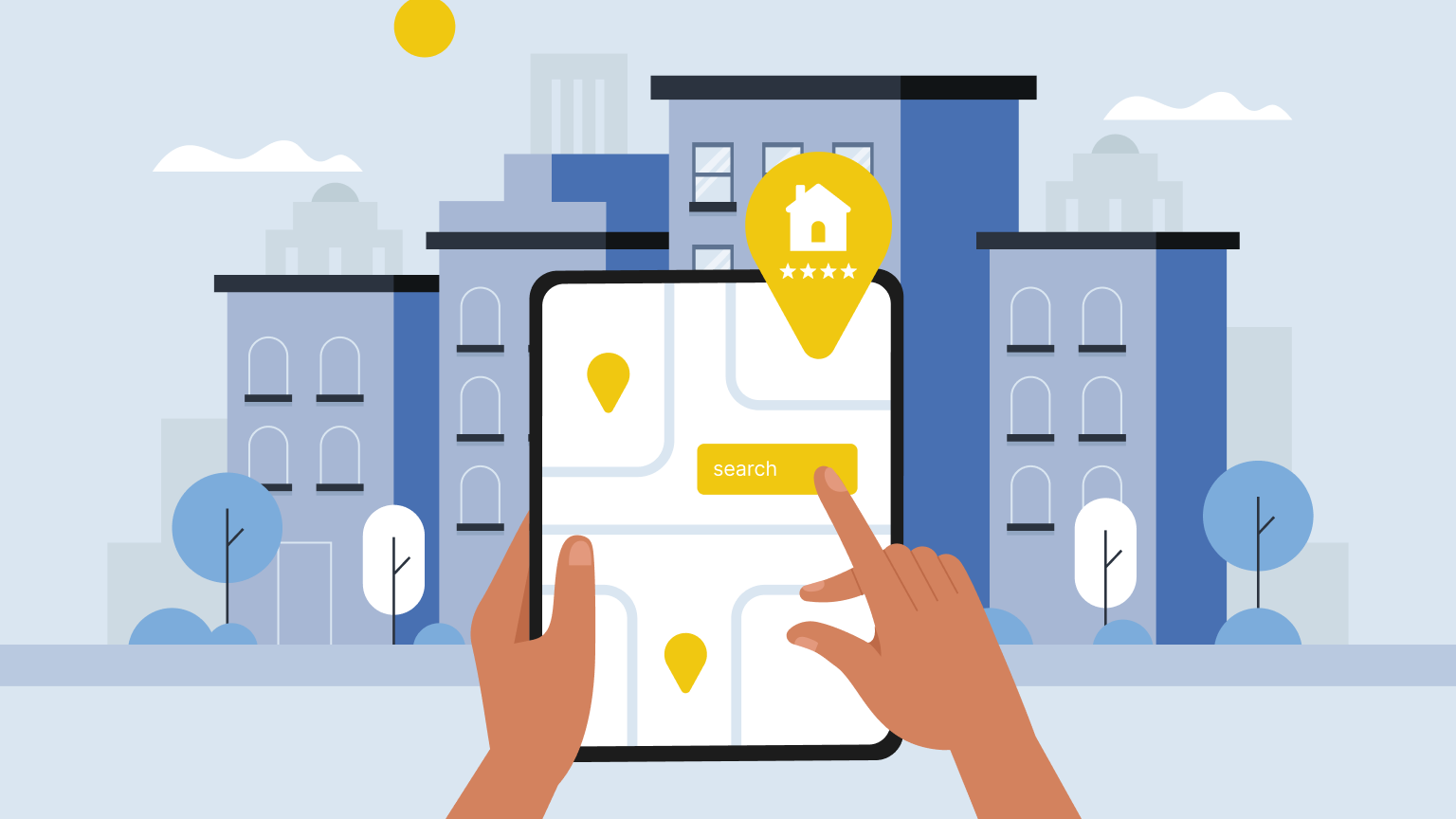As a professional in the ever-evolving real estate industry, I have observed how emerging trends such as real estate SaaS, real estate technology, and real estate software solutions radically transform the way we manage properties. In this introduction, I'll briefly touch on how leveraging these cutting-edge tools can boost efficiency, increase ROI, and elevate clients' experience in the property management realm. Stay tuned as we dive deeper into the exciting world of real estate software as a service in the upcoming article sections.

As the modern real estate industry embraces the power of technology, we find that cloud-based solutions are increasingly displacing traditional property management software. These innovative, cloud-centric platforms offer a world of benefits not available in legacy software systems. In this section, I will examine the shift towards real estate SaaS, with a focus on how it redefines property management and customer relations for a more efficient and streamlined experience.
The rapid adoption of real estate SaaS owes much to its capacity for seamless updates, better accessibility, and improved collaboration. Unlike traditional property management software, cloud-based solutions eliminate the need for manual installation or extensive hardware maintenance. Updates are rolled out automatically, ensuring that users can leverage the latest functionality and data security measures without a hitch. The always-online nature of real estate SaaS platforms enables constant access from any device, fostering enhanced collaboration and streamlining workflows for property managers and agents.
As we delve into the inherent advantages of SaaS, it's easy to see why real estate professionals are making the switch. Among the numerous benefits, the standout features include cost savings, scalability, and integration capabilities. Utilizing a subscription-based model, real estate CRM and other SaaS solutions offer flexibility in pricing without requiring hefty upfront investments in hardware and licenses. This ultimately translates to a more affordable and adaptable software environment for businesses of all sizes.
Scalability plays a pivotal role in the decision to adopt real estate SaaS. As businesses grow or scale down, property management software can be easily tailored to accommodate fluctuating requirements, ensuring efficiency and cost-effectiveness. Furthermore, a real estate platform built on the SaaS model allows for seamless integration with a plethora of other software tools and services, streamlining business operations and communication between departments.
In conclusion, the rise of real estate SaaS marks a significant milestone in the industry's technological advancement. By providing versatile, efficient, and cost-effective solutions, cloud-based property management software redefines the property management experience while delivering exceptional value to real estate professionals and clients alike.
As we dive deeper into the realm of real estate software as a service, it is essential to highlight the standout features that make these platforms an indispensable tool for modern property management. Incorporating real estate tech into daily operations enables businesses to streamline processes, enhance efficiency, and gain valuable insights that can be used to optimize overall strategy.
Real estate software as a service offers several key features that set it apart from traditional methods. Automated data analysis allows property managers to identify trends, assess the performance of their properties, and make data-driven decisions. By doing so, managers are better equipped to make accurate forecasts and implement changes that will have a positive impact on their business.
Another game-changing feature is the inclusion of customer relationship management (CRM) tools. These tools enable property managers to track leads, nurture prospects, and maintain relationships with existing clients. By keeping essential client information in one accessible location, real estate professionals are better positioned to streamline sales processes, focus on opportunities with the highest potential for success, and ultimately, close more deals.
Equally important are the dynamic reporting features found in real estate software as a service platforms. These reporting tools provide real-time data and analytics, allowing property managers to make informed decisions and identify areas ripe for improvement. Customizable reports can also be easily generated to satisfy various stakeholders, such as property owners, investors, and executive leadership.
Overall, adopting real estate software as a service platforms can revolutionize property management operations by offering an array of features designed to streamline processes, boost efficiency, and provide valuable insights. By harnessing the power of real estate tech and leveraging these key features, businesses are better poised to grow and succeed in today's competitive market landscape.

For any thriving real estate business, streamlined operations are essential in fostering client satisfaction and driving sales. Real estate CRM software emerges as a powerful solution to achieve these objectives, as it elevates the customer journey and optimizes overall efficiency in the property management domain.
With a robust real estate CRM, nurturing client relationships becomes a breeze. By centralizing all client interactions and data, CRM systems facilitate prompt follow-ups and better communication. Hence, every touchpoint is personalized, timely, and relevant, leading to improved client experience and higher conversion rates. Real estate platforms powered by CRM tools further simplify the sales process by tracking property listings, managing leads, and providing useful analytics that assists in making informed business decisions.
Automation plays a pivotal role in enhancing the productivity of real estate professionals. Real estate CRM software streamlines workflows, automatically assigning tasks and sending reminders, so that crucial deadlines are never missed. This helps to maintain an organized schedule and allows professionals to focus on delivering excellent customer service and closing deals. By automating routine tasks, the real estate platform enables smart and efficient management, leaving ample time for valuable strategic planning that uplifts the business to new heights.
At the heart of the SaaS ecosystem, real estate CRM software provides indispensable tools for streamlining client communication, sales processes, and workflow automation. By adopting these solutions, real estate professionals can refine their customer journeys, optimize productivity, and ultimately drive success in their property management businesses.
In today's fast-paced real estate market, it's essential for rental businesses to streamline their operations and stay competitive. That's where property management software (PMS) comes in, serving as a game-changer for the industry. As a part of the constantly evolving real estate technology landscape, PMS has emerged as an invaluable resource for property managers, landlords, and tenants alike.
One of the most significant advantages of using property management software lies in its ability to facilitate tenant screening. This crucial process can be time-consuming and prone to human error. However, PMS simplifies it by automating background and credit checks, as well as verifying references, thereby enabling landlords and managers to make more informed decisions about prospective tenants.
Maintenance is another critical aspect of property management where PMS shines. By offering maintenance tracking features, this software ensures that repair requests and routine maintenance tasks are efficiently handled. As a result, landlords and managers can stay on top of their properties' needs, preventing minor issues from escalating into costly problems.
Perhaps one of the most transformative aspects of property management software is its impact on rent collection. PMS streamlines rent payments by offering online and automated options, making it easier for tenants to submit their rent on time while reducing the workload for managers. Furthermore, these digital records enable property managers to track delinquencies and lease violations, thereby improving their ability to monitor and enforce rental agreements.
In addition to all these functional benefits, PMS also enhances communication between landlords, managers, and tenants. Through real-time data and mobile capabilities, all parties can stay informed and connected, fostering better relationships and promoting increased tenant satisfaction and retention rates. This modernized rental experience ensures that management tasks are executed with greater precision and responsiveness, leading to improved overall performance in the rental business.
In conclusion, property management software is indeed revolutionizing the rental industry through its plethora of advantages. By embracing this real estate technology, property managers and landlords can streamline their operations, enhance tenant satisfaction, and ultimately, drive better results in today's competitive market.

Investing in real estate technology presents a significant opportunity for property management professionals to enhance efficiency and potentially realize substantial financial returns. To gain a comprehensive understanding of the financial implications of adopting real estate SaaS, one must consider a wide range of factors, from initial investment and maintenance costs to long-term savings and scalability benefits.
Although real estate SaaS platforms may require an initial investment, they often prove more cost-effective compared to traditional real estate software solutions. Cloud-based systems minimize expenses associated with hardware, installation, and software updates, streamlining the overall maintenance process. Furthermore, many SaaS providers offer flexible, subscription-based payment models, which can be increased or decreased depending on the needs of a real estate business. This elasticity allows for substantial financial savings and a more agile operational model.
Long-term savings with real estate SaaS arise from a combination of factors, including reduced infrastructure costs, increased operational efficiency, and the potential to scale seamlessly. By automating manual processes, real estate professionals can reduce errors, save time, and ultimately allocate resources more effectively. As the real estate landscape continues to shift towards a technology-driven future, the financial advantages of harnessing real estate SaaS are indisputable. Adopting these innovative solutions not only has the potential to yield significant ROI but also positions real estate businesses at the forefront of industry advancements.
Optimize teams with SaaS user management tools.
Explore top SaaS framework solutions for growth.
Mastering B2C SaaS: strategies for success
Real Estate SaaS, or Software as a Service, refers to cloud-based solutions specifically designed for the real estate industry. These platforms streamline property management, customer relationship management (CRM), and other aspects of the real estate business by providing scalable, accessible, and cost-effective tools.
Traditional Real Estate Software requires installation on individual computers or servers, making it more challenging to manage and maintain. In contrast, Real Estate SaaS relies on cloud computing, which offers many benefits, including easy updates, accessibility from any device with internet access, seamless collaboration, cost savings, and integration capabilities with other SaaS platforms.
Real Estate SaaS platforms typically include features such as automated data analysis, CRM tools, dynamic reporting capabilities, and integration with other software solutions. These features streamline the management process, increase efficiency, and provide valuable insights that can be used to optimize the overall business strategy.
Real Estate CRM software is designed to streamline client communication, manage sales processes, and automate repetitive tasks. By helping maintain and nurture relationships with clients, this technology simplifies the customer journey from initial contact to closing deals. It also contributes to increased operational efficiency by automating workflows and reducing the need for manual intervention.
Property Management Software has been a game-changer for rental businesses by streamlining tenant screening, maintenance tracking, and rent collection processes. It has also improved communication between landlords, property managers, and tenants by leveraging real-time data and mobile capabilities. As a result, rental management tasks are handled with greater precision and responsiveness, leading to increased tenant satisfaction and retention rates.
Investing in Real Estate SaaS involves an upfront cost, similar to traditional software. However, Real Estate SaaS offers long-term savings through ongoing maintenance savings, enhanced operational efficiency, and the potential for significant ROI. By eliminating manual intervention and streamlining processes, SaaS solutions result in financial advantages driven by scalability and efficiency.
Real Estate Software
SaaS Solutions
Smart Management
Real Estate Technology
Property Management Software
Passionate writer who loves diving into diverse subjects. Through my engaging content, I aim to inspire and captivate readers.
Suggested Articles
